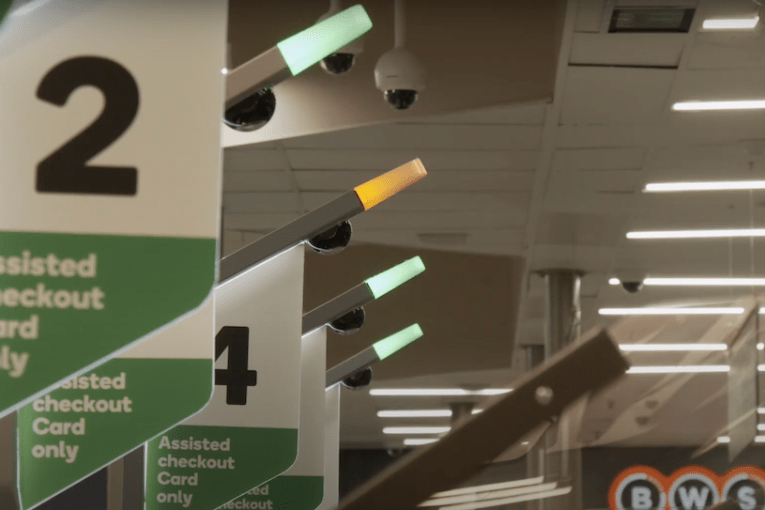Government urged not to bail out airlines without taking equity


Australians are being urged to secure flights out of the USA before Qantas and other airlines stop flying. Photo: TND
Prominent economists have warned the federal government against using taxpayer money to bail out struggling companies without buying a stake in them.
Although government intervention will be required to stop virus-induced bankruptcies and prevent massive job losses, governments should refrain from lending capital with no strings attached to airlines and other companies on the brink of bankruptcy, the economists argued.
The government should instead buy equity in these companies as this would allow it to realise a financial gain for taxpayers down the track when the economy has recovered and it can sell its stake for a profit.
This would also be a more effective way of helping larger firms stay in business than offering tax holidays and waiving fees, as neither of those policies fix the core problem of weak consumer spending.
This is especially true in the aviation sector, where fixed costs can comprise 80 per cent of overheads and customers are cancelling flights en masse due to travel restrictions and rapidly diminishing demand for vacations.
Qantas CEO Alan Joyce, who will forgo his $24 million annual salary for the rest of this financial year, told staff on Tuesday the virus was “the single biggest shock that global aviation has ever experienced”.
The airline has cancelled 90 per cent of its international flights until the end of May.
Virgin Australia has cancelled all of its international flights from March 30 to June 14.
And Australia’s largest independent regional airline Regional Express (Rex) said it would fold within six months unless it received more government support – plunging regional communities into “utter chaos and mayhem”.
Tweet from @TMFScottP
Government responds
The federal government consequently announced on Wednesday that it would waive $715 million worth of fees and charges for domestic airlines, before a second economy-wide stimulus package to be announced on Thursday.
Trade Minister Simon Birmingham said on Tuesday that “a strong airline sector is not negotiable in terms of being a part of Australia’s recovery for the future”.
UNSW economics professor Tim Harcourt took a similar view, telling The New Daily that airlines are “like a public good” in Australia and should be helped through these challenging times.
Not only because Australia is a large country located far from others and therefore reliant on air travel, but also because there are implicit “mutual obligations” between the Australian public and Qantas, as demonstrated by the airline’s willingness to pick up Australian residents stranded in Wuhan, China, at the behest of the Prime Minister.
He said the initial $715 million offered to the airlines “was pretty modest” but added that governments had to start somewhere.
But should the situation continue to deteriorate, Professor Harcourt said “there is a case for a government stake in Qantas in particular”.
Tweet from @TimHarcourt
Re-nationalisation on the cards
“You start with the $715 million package … which won’t have much political controversy as it’s just getting rid of charges temporarily, it’s not a big cash splash,” Professor Harcourt.
“But if it gets worse, I think you have to go for partial equity.
“[Qantas] deserve public support but I’d rather it be something managed together rather than injections of cash all the time … and, dare I say it, the industry super funds could be part of a solution as an investor.”
Professor Harcourt added that Virgin Australia could draw funds from its pool of international shareholders, which includes Etihad, Singapore Airlines and HNA.
Virgin has so far said that it won’t need to do this, and both Qantas and Virgin say they have more than $1 billion in cash reserves.

Prime Minister Scott Morrison and Treasurer Josh Frydenberg announced a $17.6 billion stimulus package last week.
More broadly, Australian Laureate Fellow in Economics at the University of Queensland John Quiggin told The New Daily that re-nationalisation of some corporates was likely given the challenges facing the economy.
But he said the government would need to carefully assess its options before acting.
“It’s hard to see the airlines staying afloat in financial terms, so I think we need to be considering at least temporary national ownership,” Dr Quiggin said.
UTS industry professor Warren Hogan backed a similar approach yesterday – comparing it to America’s GFC-era Troubled Asset Relief Program (TARP).
Tweet from @MichaelWestBiz
‘Corporate welfare’
Nationalisation of larger firms – as opposed to a series of cash injections – has the added benefit of minimising public outrage at a time of rising populism and widening inequality.
As independent journalist Michael West wrote on Tuesday: “questions will be asked as to how Qantas and other large corporations can pay almost no tax for 10 years, put the screws on the price of labour in their workforces, pay themselves exorbitant executive salaries and board fees, then cry poor when things turn ugly”.
Mr West noted that Virgin Australia had paid no tax over the past five years, while Qantas CEO Alan Joyce had taken home roughly $100 million in executive pay since 2009.
“Indeed, while executive salaries rose at a clip, the average age of the Qantas fleet, which is older than peer airlines, went from 8.3 years in 2012 to 12.8 years since last year,” Mr West wrote.
“It is unlikely the public will swallow the line for much longer that “free markets” should prevail in the good times, only to be quickly dismissed in favour of corporate welfare when things go awry.”








